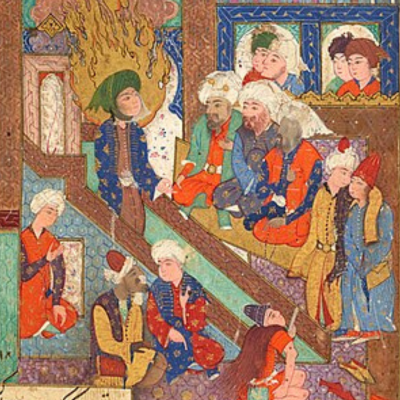
Write something
Counting.
One of the things I consider when facing the reality of aging family is to count. I am 22, my parents are approaching 60, I live a fair distance from them, and I spend only some time with them every year. If the average human lifespan is 81 years, you can count the remaining times you have left to spend with them. Once I counted my number, one of the things I try to understand is that I have less time for many things than I think I do. I am aware of this, I try to be grateful, and awake. I try to maximise the time spent, and minimise the stupidity and unnecessary suffering because I do not know when this opportunity is going to disappear. 20 years sounds like a lot. But how much time is actually spent together? Counting adds perspective.
1
0
King Solomon On Parents
Listen to your father who begot you, and do not despise your mother when she is old. ~ Proverbs 23:22 (NRSV) —————————————————————————————————————————————————————————— Proverbs 23:22
1
0
Treatise On The Right Of The Mother
The right of your mother is that you know that she carried you where no one carries anyone, she gave to you of the fruit of her heart that which no one gives to anyone, and she protected you with all her organs. She did not care if she went hungry as long as you ate, if she was thirsty as long as you drank, if she was naked as long as you were clothed, if she was in the sun as long as you were in the shade. She gave up sleep for your sake, she protected you from heat and cold, all in order that you might belong to her. You will not be able to show her gratitude, unless through God's help and giving success. -------------------------------------------------------------------------------------------------------------------------------------------------------------------- Ali ibn Husayn Zayn al-Abidin, “Treatise on Rights,” in The Psalms of Islam: Al-Sahifa al-Sajjadiyya
1
0
Treatise On The Right Of The Father
The right of your father is that you know that he is your root. Without him, you would not be. Whenever you see anything in yourself which pleases you, know that your father is the root of its blessing upon you. So praise God and thank Him in that measure. And there is no strength save in God. -------------------------------------------------------------------------------------------------------------------------------------------------------------------- Ali ibn Husayn Zayn al-Abidin, “Treatise on Rights,” in The Psalms of Islam: Al-Sahifa al-Sajjadiyya
1
0

The Bible On Parents
The Fifth Commandment: Honour Your Father And Mother, So That Your Days May Be Long In The Land That The Lord Your God Is Giving You (Exodus 20:12). This commandment caused Viktor Frankl to be sent to Auschwitz. He writes in A Man's Search For Meaning: "The question beset me: could I really afford to leave my parents alone to face their fate, to be sent, sooner or later to a concentration camp, or even to a so-called extermination camp? Where did my responsibility lie? Should I foster my brain child, logo-therapy, by emigrating? Or should I concentrate on my duties as a real child, the child of my parents who had to do whatever he could to protect them? I pondered this problem, it was then that I noticed a piece of marble lying on a table at home. When I asked my father about it, he explained that he had found it where the Nazis had burned down the largest Viennese synagogue. He had taken the piece home because it was a part of the tablets on which The Ten Commandments were inscribed. One gilded Hebrew letter was engraved on the piece; my father explained that this letter stood for one of the commandments. Eagerly I asked, "Which one is it?" He answered "Honour thy father and thy mother, that thy days may be long upon the land." At that moment I decided to stay with my father and my mother upon the land, and let the American visa lapse (Frankl, V. 1992. p13)." If we are fortunate, we shall never have to make a decision like Frankl did. However, the Commandment is important in several ways: We are not naive, we know our parents have a fallen aspect, but we should make our respect for them known regardless. Not everything past has to be brought forward, some appreciation for the faults of parents can be developed in the course of our maturation - but the fundamental attitude of reverence must be maintained. Without such honour, all of the necessary constraints of tradition vanish; worse, the future itself degenerates. An absence of respect for father and mother simultaneously means absence of respect for future self. We gaze without commensurate shame on the nakedness of our parents (Peterson, J. 2024. p225)."
2
0
1-5 of 5
Suggested communities
Powered by

